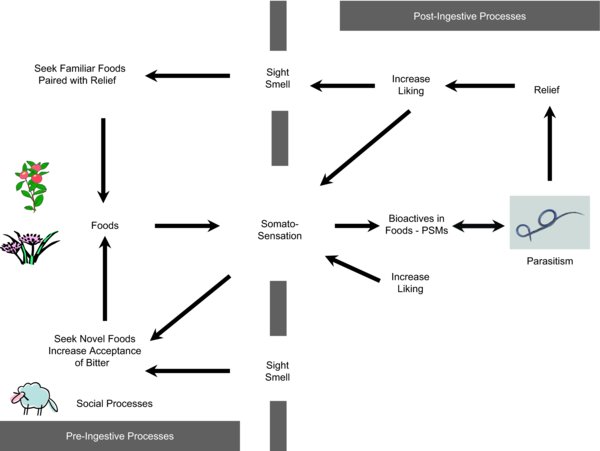Figure 2.

Download original image
A conceptual representation of how pre- and post-ingestive events control the manifestation of self-medicative behavior in mammalian herbivores. Self-medication emerges from enhanced neophilia and increased acceptance of certain somatosensations (e.g., taste dimensions, tactile properties) triggered by parasitism. These increases in neophilia and acceptability, together with social learning, should “prime” animals to ingest therapeutic doses of medicinal secondary compounds (pre-ingestive processes). Subsequently, associative learning (i.e., associations between orosensorial properties of a medicinal food and relief experienced after ingesting that food) will maintain and/or reinforce self-medicative behaviors. Thus, a chain of events starting with food acceptability and social learning followed by post-ingestive processes may contribute to the emergence of self-medication in mammalian herbivores.
Current usage metrics show cumulative count of Article Views (full-text article views including HTML views, PDF and ePub downloads, according to the available data) and Abstracts Views on Vision4Press platform.
Data correspond to usage on the plateform after 2015. The current usage metrics is available 48-96 hours after online publication and is updated daily on week days.
Initial download of the metrics may take a while.


